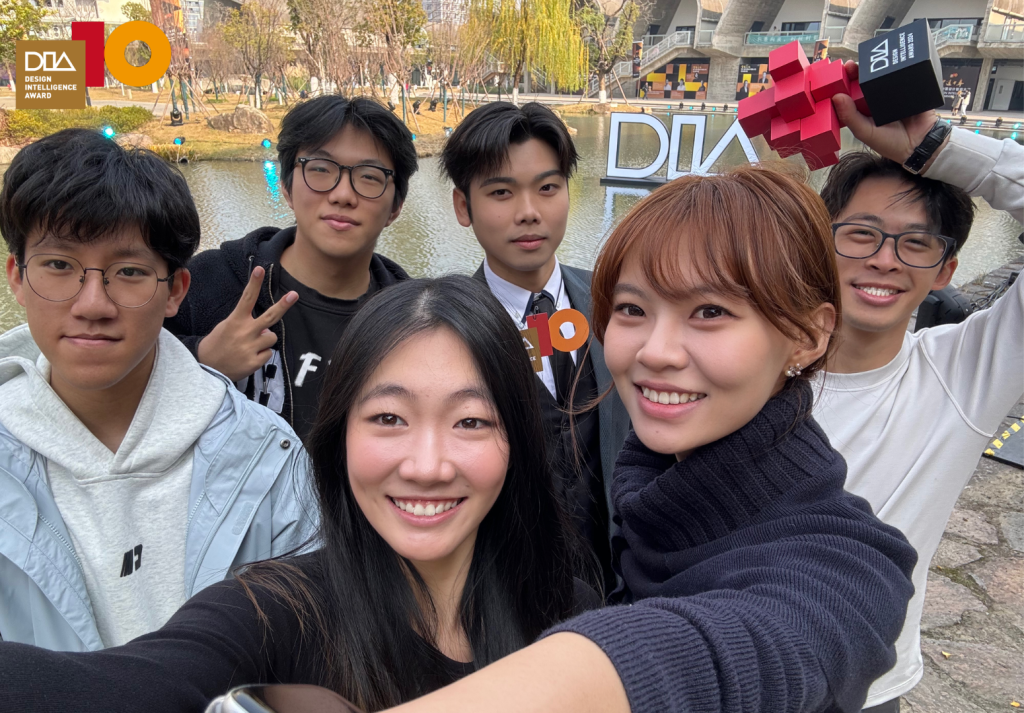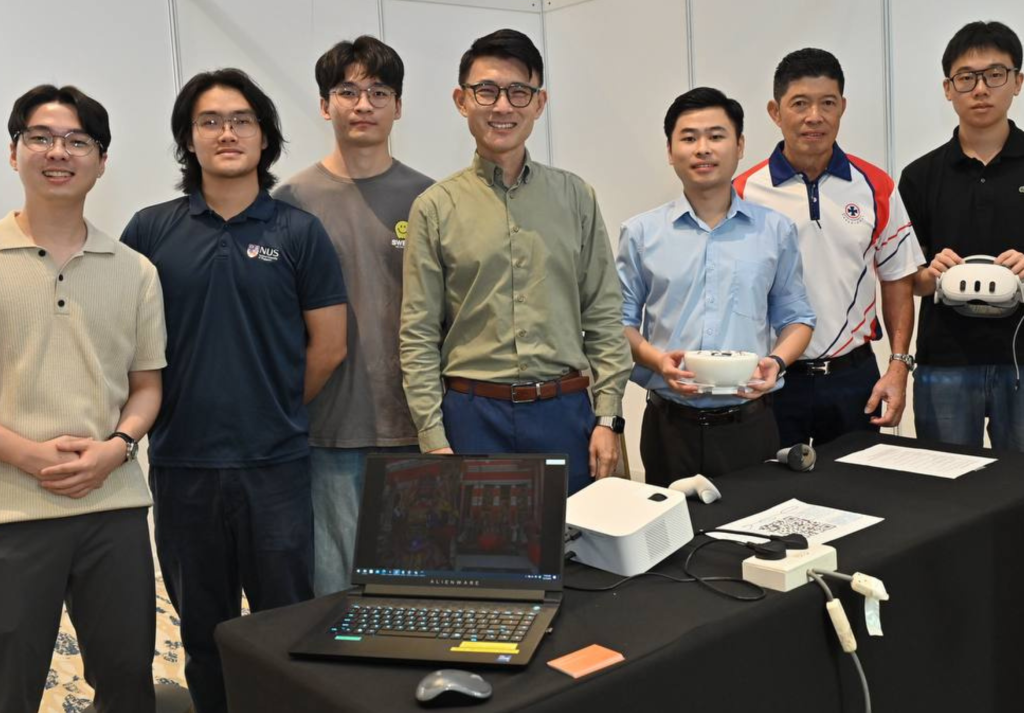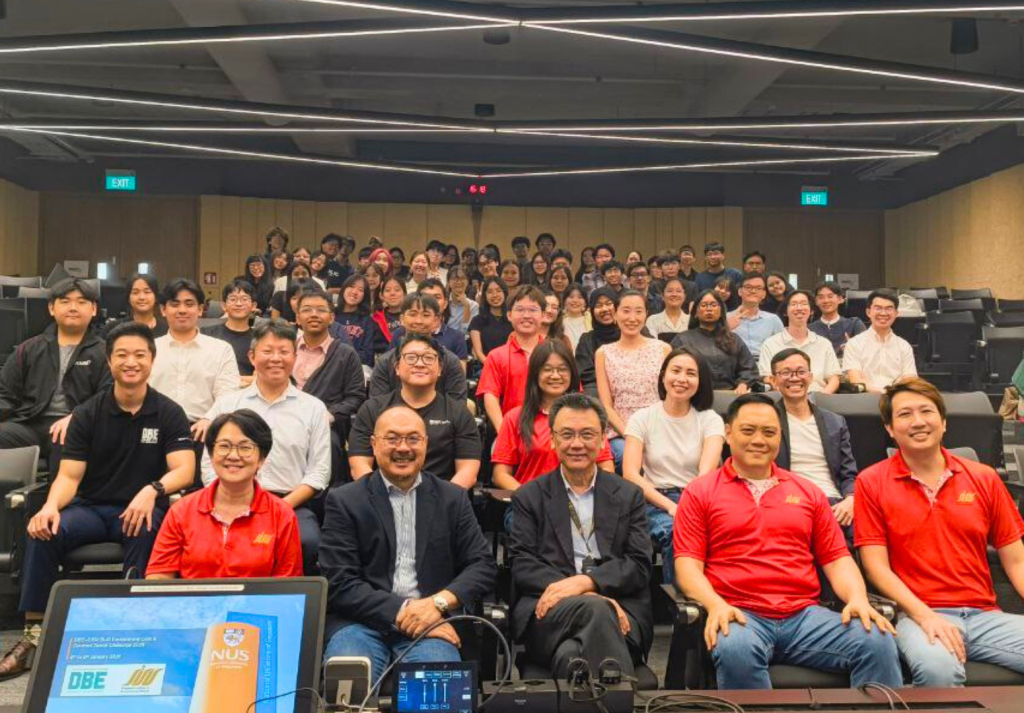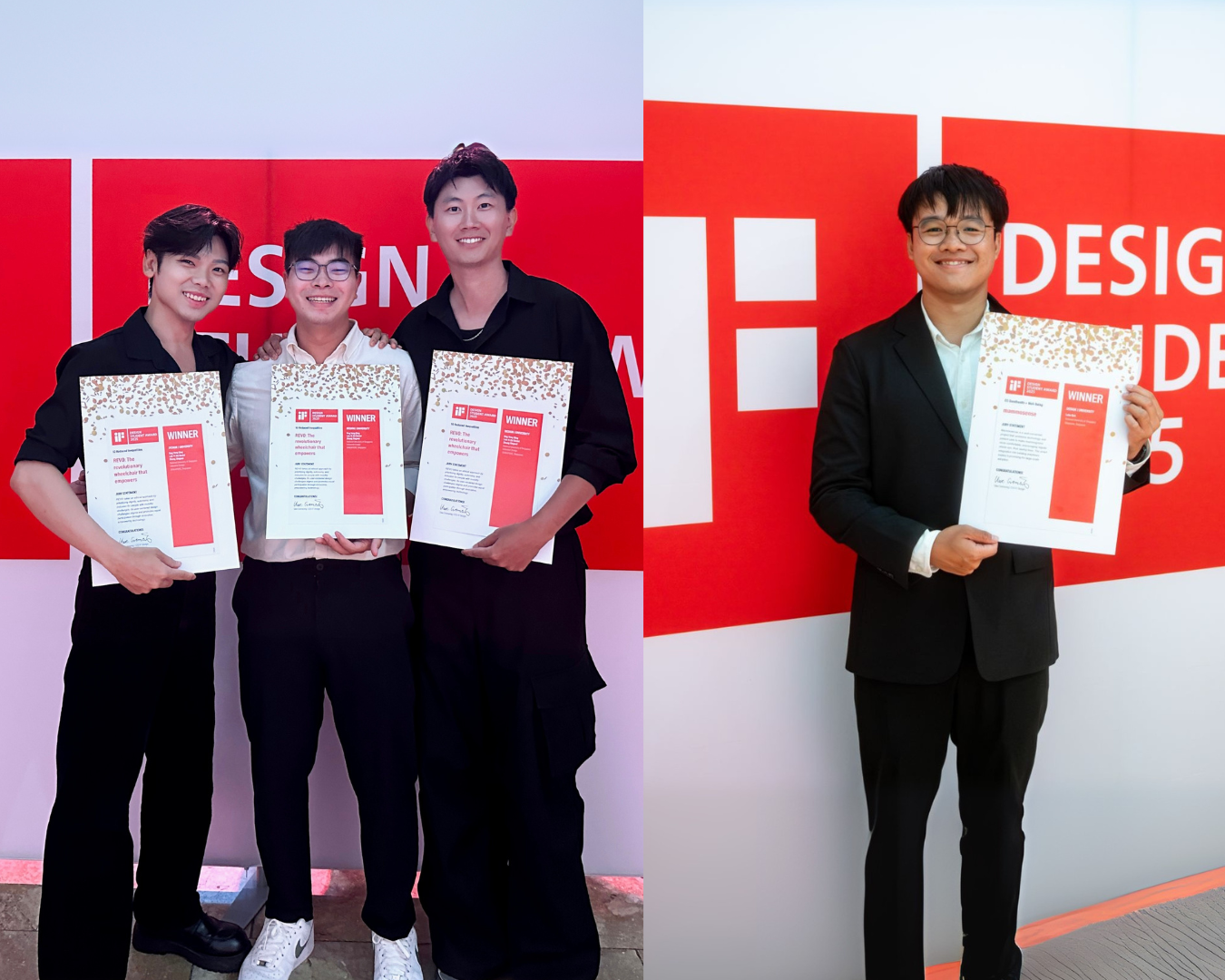
Two projects from the Division of Industrial Design (DID) have earned international recognition at the iF DESIGN STUDENT AWARD 2025. Selected from over 7,000 global entries, REVO and Mammosense were recognised among the top 100 winning submissions for their focus on thoughtful, inclusive, and impactful design.
The iF DESIGN STUDENT AWARD is one of the world’s most respected student design competitions, evaluating submissions on problem-solving, ethics, solidarity, economic impact, and user experience. The award ceremony took place at the Guggenheim Museum in Bilbao, Spain, on 20 June 2025.
REVO
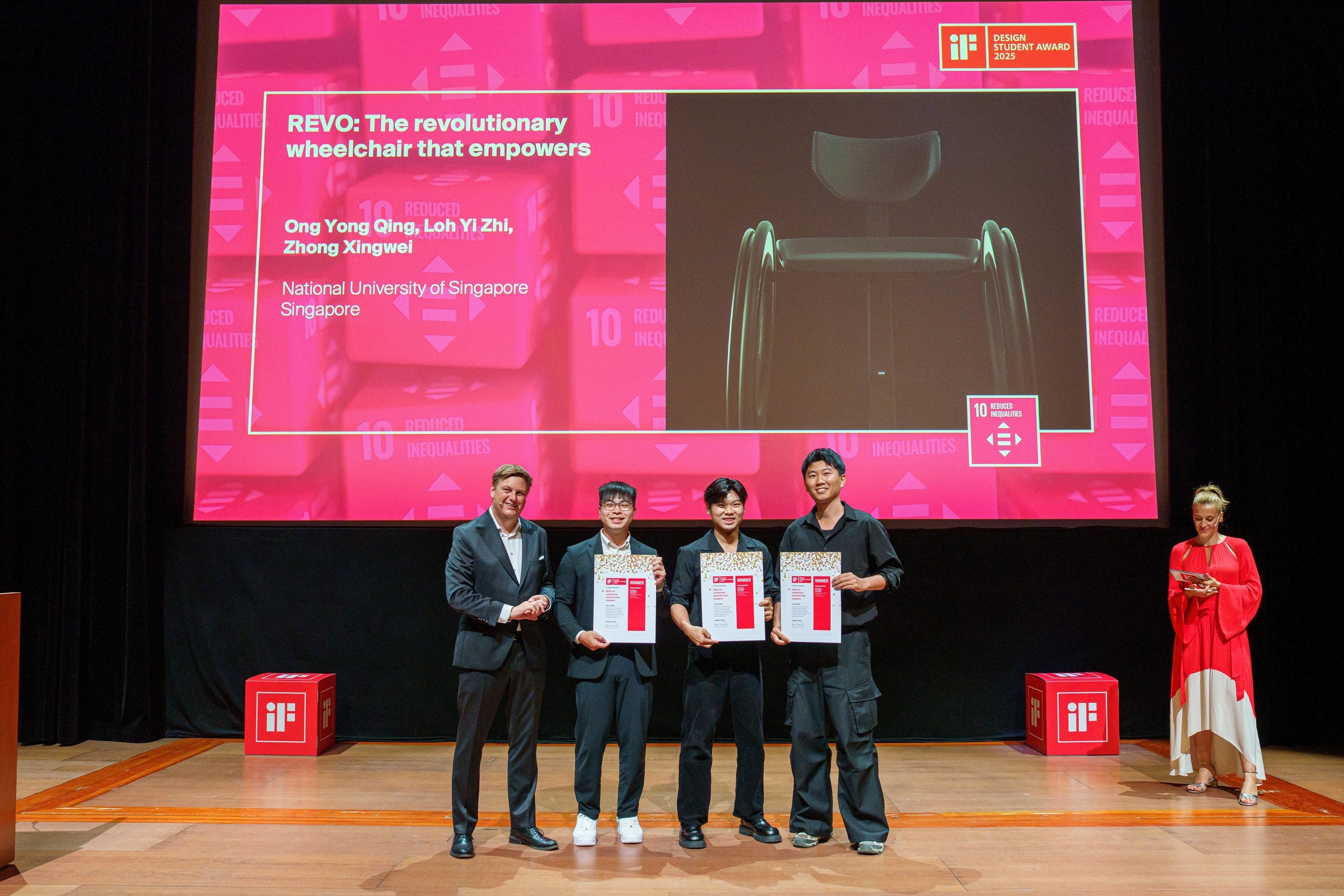
A team of three Industrial Design undergraduates, Loh Yi Zhi, Ong Yong Qing, and Zhong Xingwei, was presented with the iF DESIGN STUDENT AWARD 2025 for their project, REVO.
Supervised by Associate Professor Song Kee Hong from the Division of Industrial Design, the team conceptualised REVO, an innovative wheelchair that aims to transform mobility for users by combining advanced technology with thoughtful, user-centred design. Their concept seeks to empower individuals with greater independence, dignity and confidence.
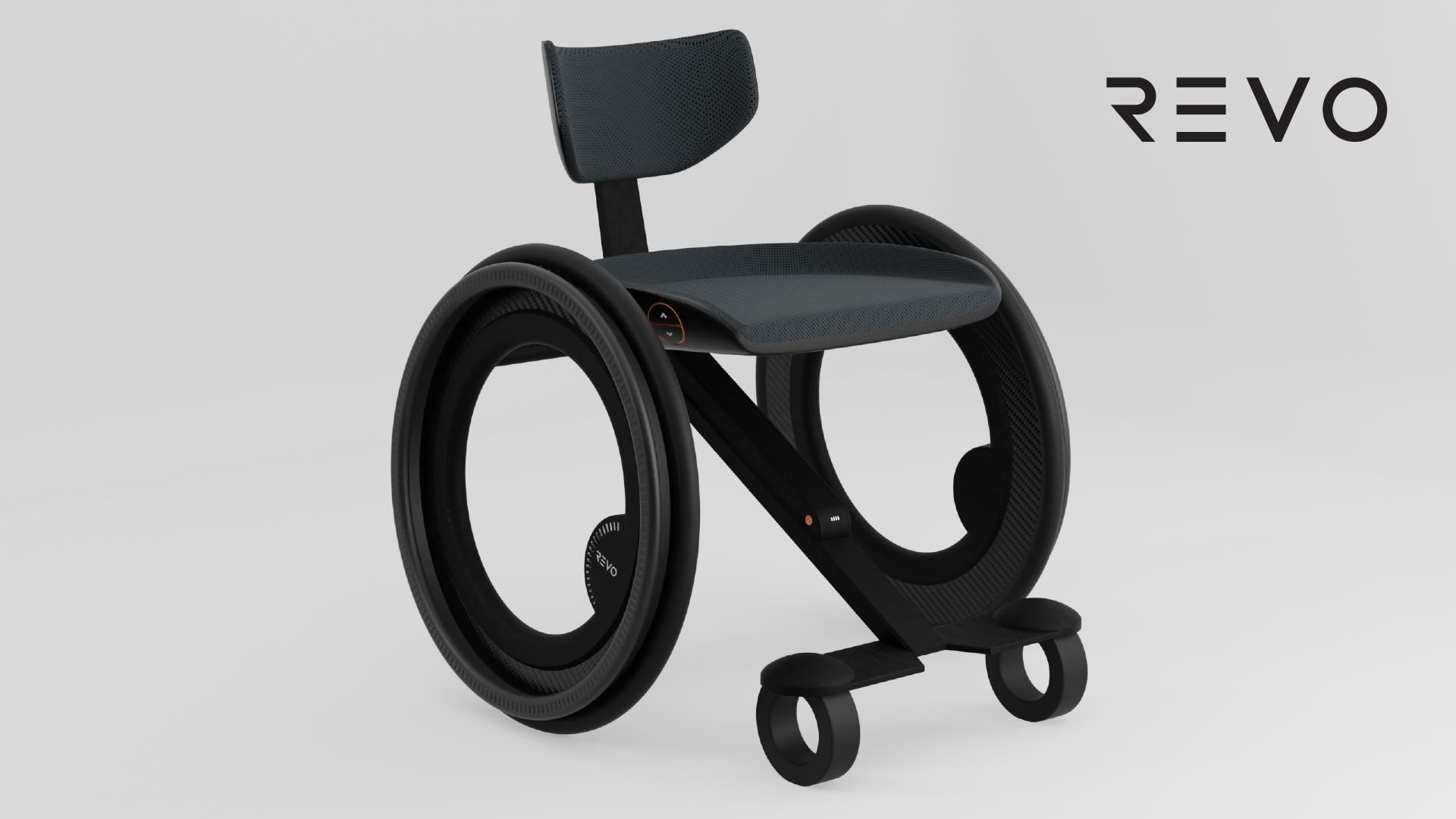
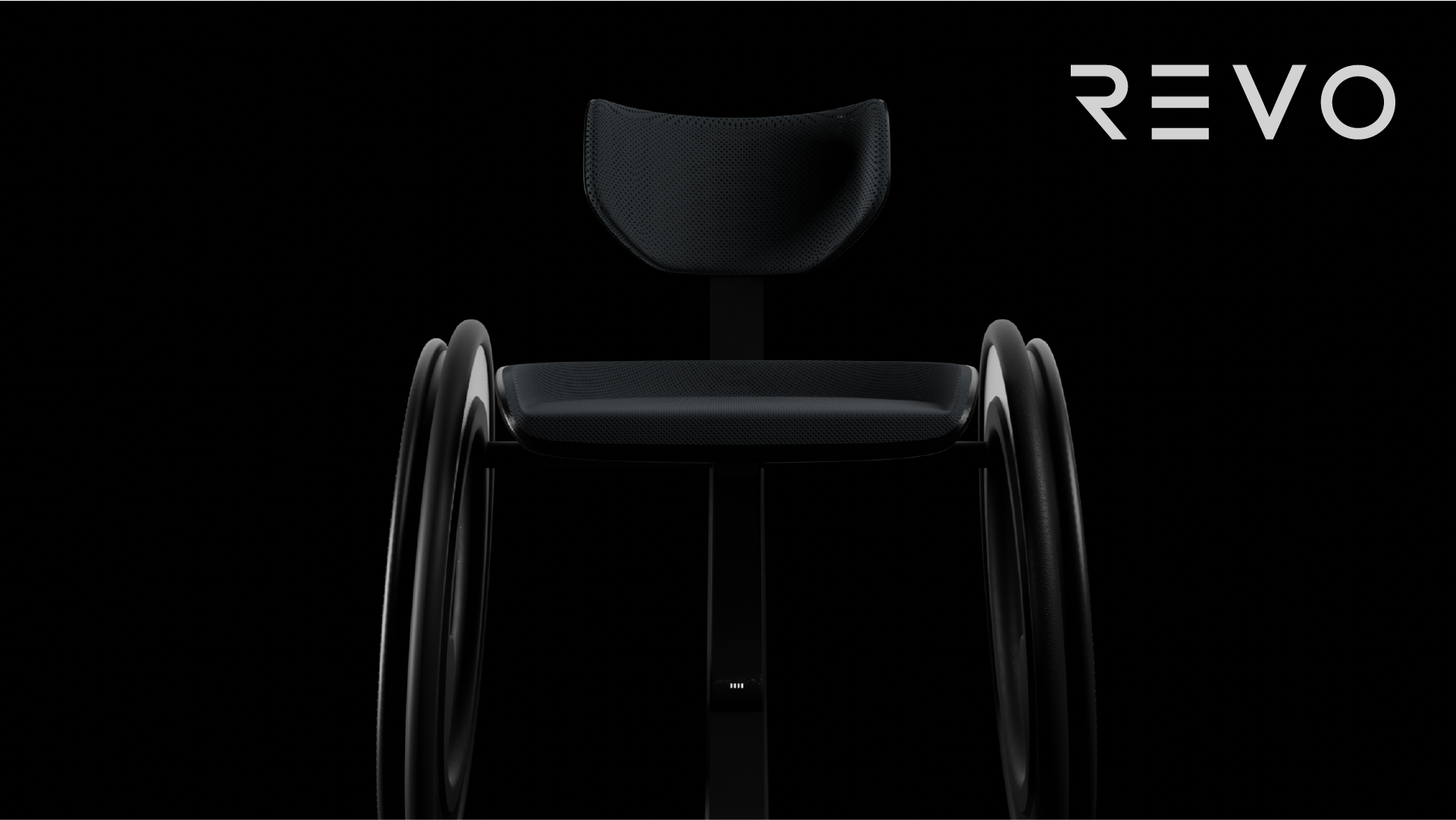
REVO challenges standard wheelchair design by integrating advanced assist technology inspired by e-bikes to reduce fatigue and allow smoother movement. Powered assistance makes it easier to ascend slopes, while a pneumatic lift system helps users reach items on higher shelves and adjust their seat to eye level for more natural social interactions. The concept also features a straightforward lock-in mechanism for stability and a removable lithium-ion battery that is designed for easy access, placing daily convenience, inclusion and independence at the forefront.


Powered assist inspired by e-bikes reduces fatigue and supports smooth uphill movement


A pneumatic lift system that helps users reach items on higher shelves
“We noticed a gap in mobility solutions for younger wheelchair users, especially when it came to fatigue and social interaction,” said Yi Zhi. “Our aim was to design a concept that destigmatises wheelchair use while restoring a sense of control and dignity to users.”


Unlike standard wheelchairs, REVO lifts users to eye level, enabling a confident, face-to-face connection
The jury praised REVO for its ethical and human-centred approach: “REVO takes an ethical approach by prioritising dignity, autonomy, and inclusion for people with mobility challenges. Its user-centred design challenges stigma and promotes equal participation through innovative, empowering technology.”
By addressing the United Nations Sustainable Development Goal #10, Reduced Inequalities, REVO demonstrates how thoughtful design can promote social inclusion and equal opportunity.
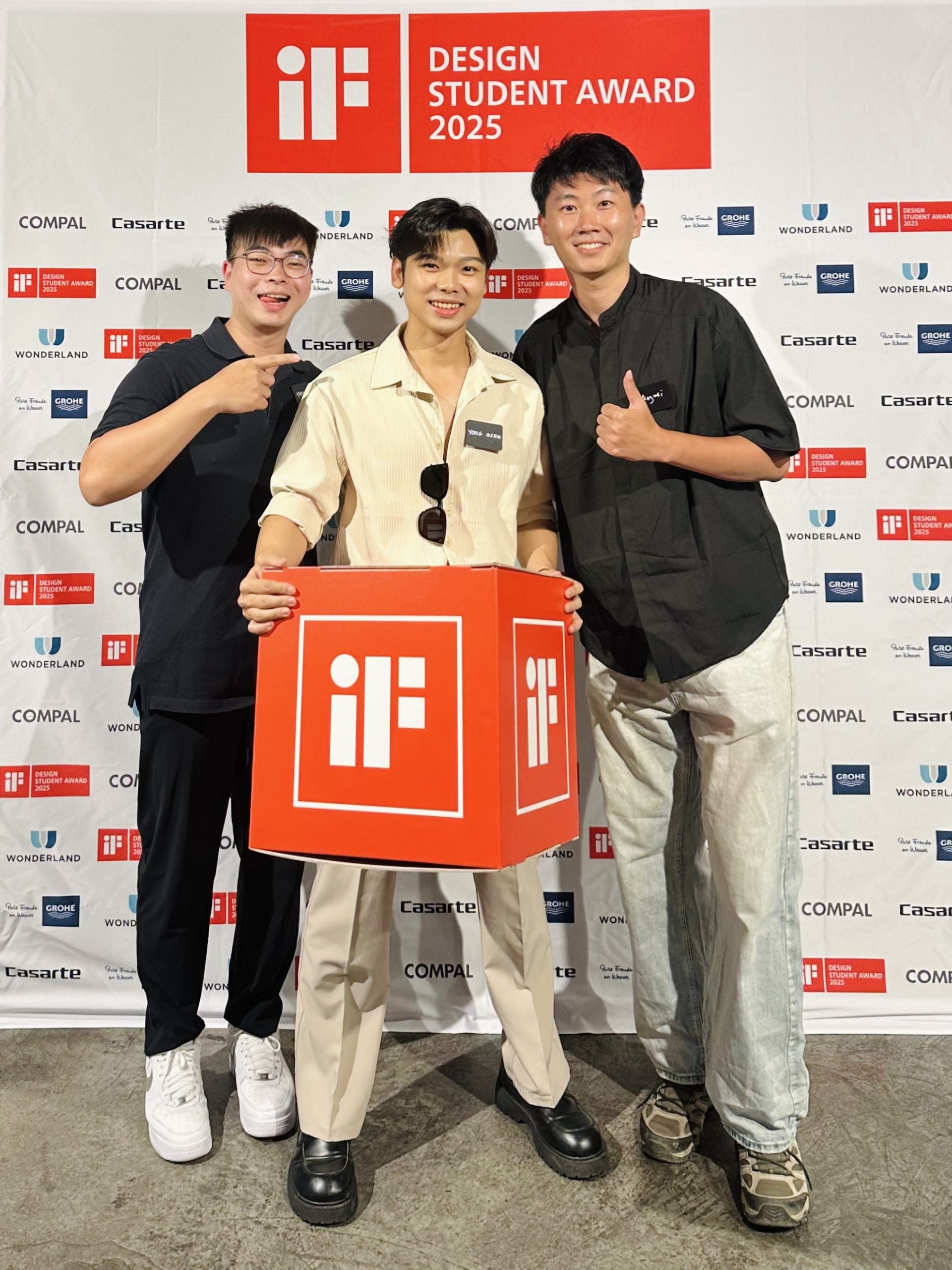
The project began in a design studio led by Associate Professor Song Kee Hong, who encouraged the team to push their concept further. “Assoc Prof Song challenged us to refine the idea to the best it could be,” said Yi Zhi. “He has always believed that student studio projects can compete on the world stage, and he consistently pushes us to submit our work for international awards.”
Associate Professor Song Kee Hong commended the students’ achievement, “As their supervisor, I have seen firsthand the passion, perseverance and thoughtful design thinking that went into this project. This recognition is a meaningful encouragement for them and for all of us to keep using design as a force for good, not just for aesthetics.”
Watch REVO in action:
Team members
Loh Yi Zhi, Bachelor of Arts in Industrial Design, Class of 2025
Ong Yong Qing, Bachelor of Arts in Industrial Design, Class of 2026
Zhong Xingwei, Bachelor of Arts in Industrial Design, Class of 2027
Project supervisor
Associate Professor Song Kee Hong, Division of Industrial Design
Mammosense

Mammosense is designed to be a smart add-on for mammogram machines that uses non-contact sensing to make breast screenings more comfortable and personalised for women.
Luke Goh (Class of 2024), the designer of Mammosense, under the guidance of Associate Professor Yen Ching-Chiuan, applied Light Detection and Ranging (LiDAR) technology to analyse the breast during mammograms and provide data-driven guidance for radiographers.
Its sensors help map the breast digitally in its software, with algorithms processing the data in real time to help determine the optimal compression force required to achieve clear imaging while minimising discomfort.
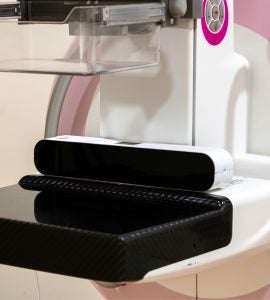
Early iterations focused on creating a more comfortable interface between human and machine, but proved challenging due to the technical limitations of X-ray equipment. Despite challenges, Luke focused on understanding what was important to medical professionals when developing his solution.
One of the primary considerations was ensuring the solution would not hinder their workflow but would instead aid them in conducting mammograms. “I knew that the common experience was pain during the procedure, and it influenced both radiographers and patients. Improving comfort also involved reducing pain, which directly correlates to reducing force. That was when I started questioning: How much was enough?” said Luke.
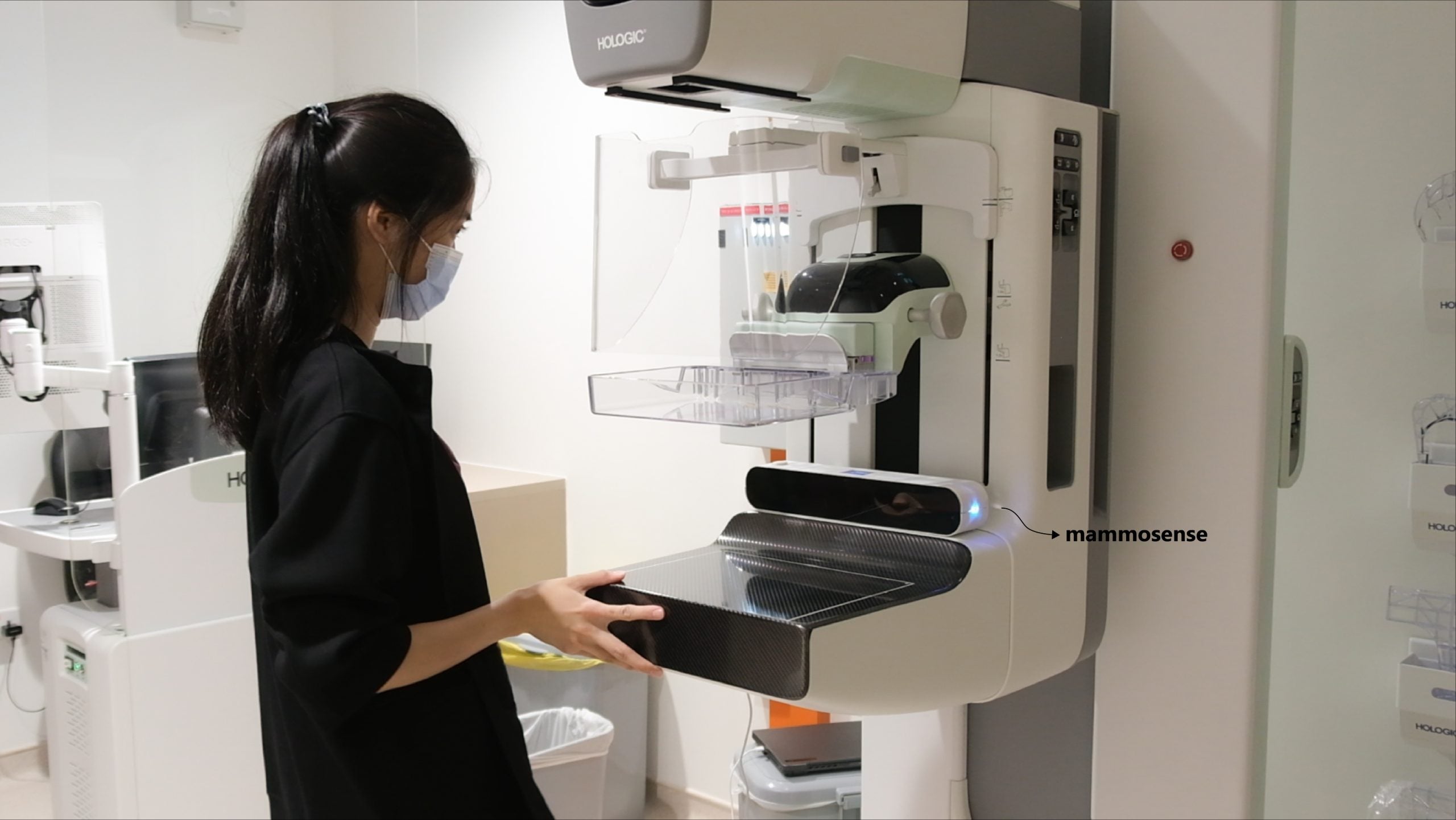
Luke said, “Winning an iF DESIGN STUDENT AWARD for Mammosense is incredibly meaningful to me. It validates the effort to design a more comfortable and accessible mammogram experience. I am proud that a project grounded in empathy and user insight is being recognised globally.”
The jury praised Mammosense as “a well-conceived project that combines technology and patient care to make mammograms more comfortable, encouraging regular check-ups, thus saving lives. The smart integration into existing machines makes it promising for large-scale adoption.”
Mammosense also addresses the United Nations Sustainable Development Goal #3, Good Health and Well-Being, by improving the breast screening experience and supporting early detection.
Luke’s mentor, Associate Professor Yen, said, “I am proud of Luke’s iF DESIGN STUDENT AWARD win. Mammosense exemplifies how multidisciplinary collaboration and design innovation can drive meaningful change in healthcare. It’s been a privilege to support this impactful work.”
Luke was also the National Winner of the James Dyson Award 2024 (Singapore) and was named among the Global Top 20.
Read more about Mammosense here: DiD Gradshow 24
Project by
Luke Goh, Bachelor of Arts in Industrial Design, Class of 2024
Project supervisor
Associate Professor Yen Ching-Chiuan, Division of Industrial Design



